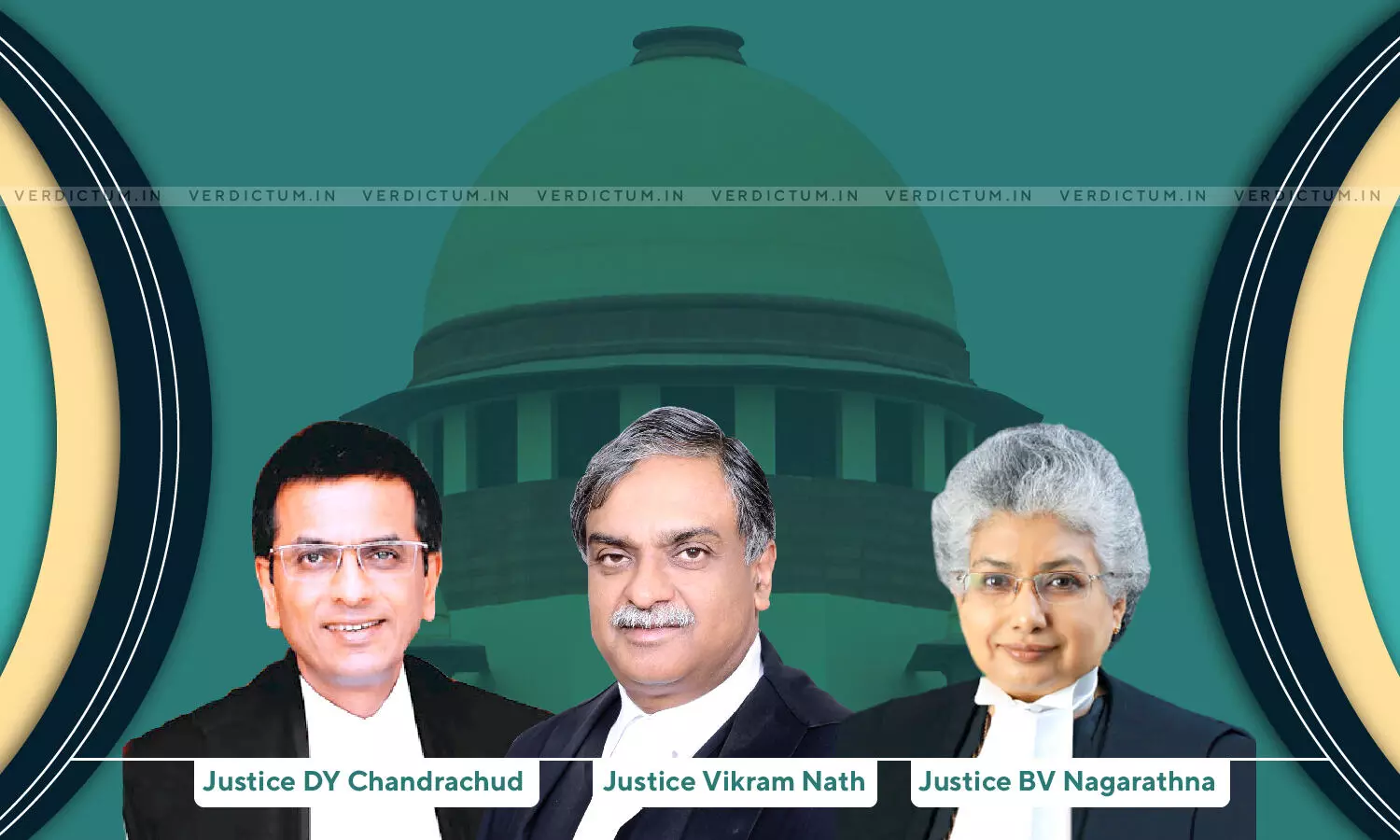
Appeal Under IBC – Aggrieved Person Can't Await Receipt Of Free Copy Of Order And Prevent Limitation From Running: Supreme Court
 |
|A three-judge Bench of Justice Dr. DY Chandrachud, Justice Vikram Nath and Justice BV Nagarathna has held that "It is not open to a person aggrieved by an order under the IBC to await the receipt of a free certified copy under Section 420(3) of the Companies Act 2013 read with Rule 50 of the NCLT and prevent limitation from running."
An appeal was preferred against the judgment of NCLAT which had dismissed the appeal of the Appellant on the ground that it was barred by limitation. The Appellate Tribunal relied upon Section 61(2) of IBC according to which appeals must be filed within a limited period of 30 days extendable by 15 days and held that the appeal under Section 61(1) was barred by limitation.
In this case, the Appellant, who was the Resolution Professional and thereafter the Liquidator, had contended before the Court that even a delay in applying for a certified copy would not attract the explanation to Section 12 of Limitation Act when a free copy was statutorily mandated and online downloaded copies can be annexed for filing appeals. Further, it was argued that Section 12(2) of the Limitation Act would apply where no appeal could be filed without an application for, and furnishing of a certified copy. In any case, Section 12(2) of the Limitation Act excludes the time taken from the date of order to it becoming available.
The two issues which were dealt with by the Court were –
i) When will the clock for calculating the limitation period run for proceedings under the IBC; and
ii) Is the annexation of a certified copy mandatory for an appeal to the NCLAT against an order passed under the IBC.
The Apex Court after considering the contentions of both parties rejected the contention of the Appellant that the right to receive a free copy under Section 420(3) of the Companies Act obviated the obligation on the Appellant to seek a certified copy through an application.
The Court held, "While it may well be true that waivers on filing an appeal with a certified copy are often granted for the purposes of judicial determination, they do not confer an automatic right on an applicant to dispense with compliance and render Rule 22(2) of the NCLAT Rules nugatory."
"The act of filing an application for a certified copy is not just a technical requirement for computation of limitation but also an indication of the diligence of the aggrieved party in pursuing the litigation in a timely fashion," the Court observed.
The Court held, "Owing to the special nature of the IBC, the aggrieved party is expected to exercise due diligence and apply for a certified copy upon pronouncement of the order it seeks to assail, in consonance with the requirements of Rule 22(2) of the NCLAT Rules. Section 12(2) of the Limitation Act allows for an exclusion of the time requisite for obtaining a copy of the decree or order appealed against."
Further, the Bench asserted, "The litigant has to file its appeal within thirty days, which can be extended up to a period of fifteen days, and no more, upon showing sufficient cause. A sleight of interpretation of procedural rules cannot be used to defeat the substantive objective of a legislation that has an impact on the economic health of a nation."
Regarding the second issue, the Court opined, "It is true that the tribunals, and even this Court, may choose to exempt parties from compliance with this procedural requirement in the interest of substantial justice, as re-iterated in Rule 14 of the NCLAT Rules, the discretionary waiver does not act as an automatic exception where litigants make no efforts to pursue a timely resolution of their grievance. The appellant having failed to apply for a certified copy, rendered the appeal filed before the NCLAT as clearly barred by limitation."
In the light of these observations, the Court dismissed the appeal.